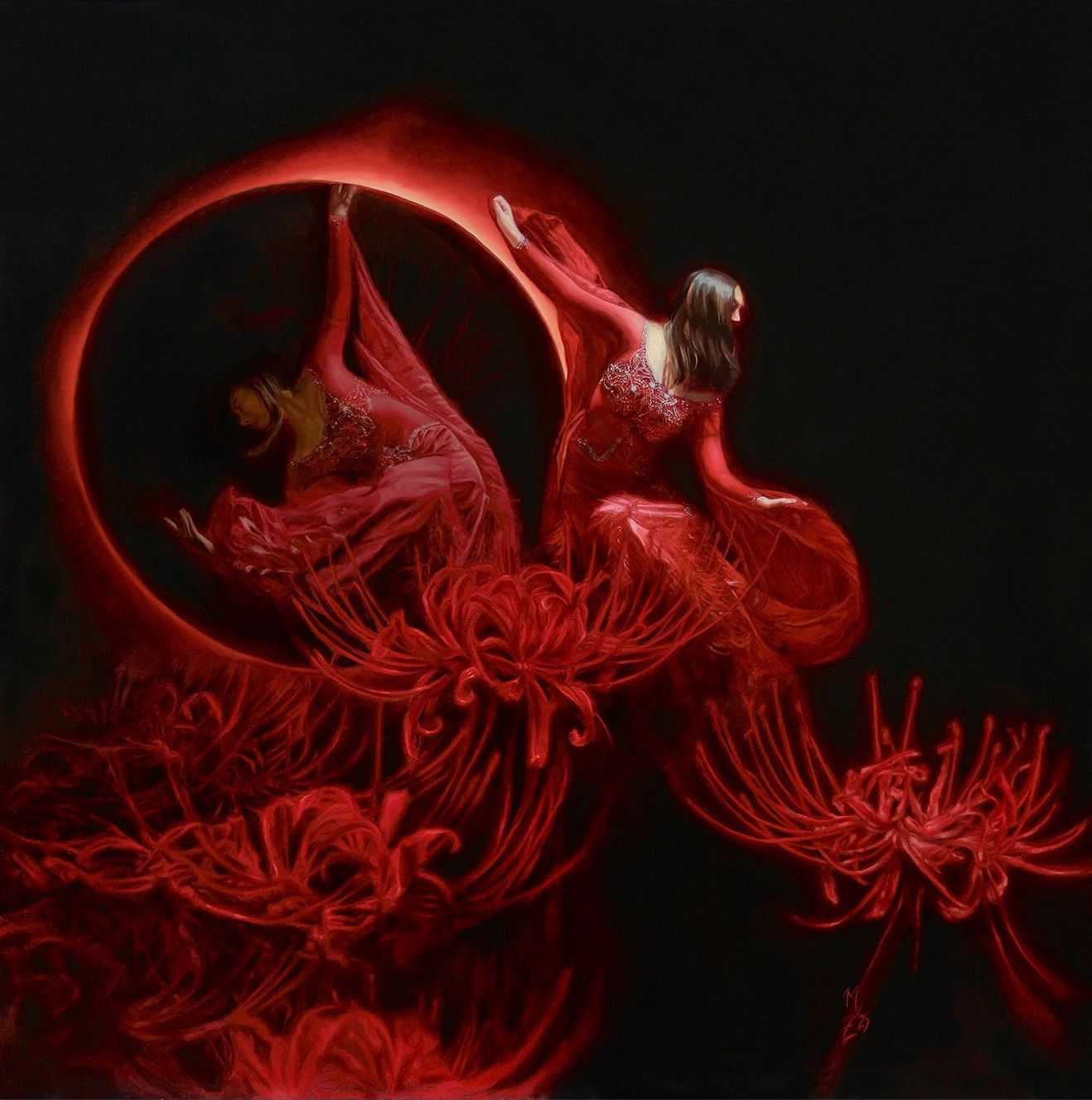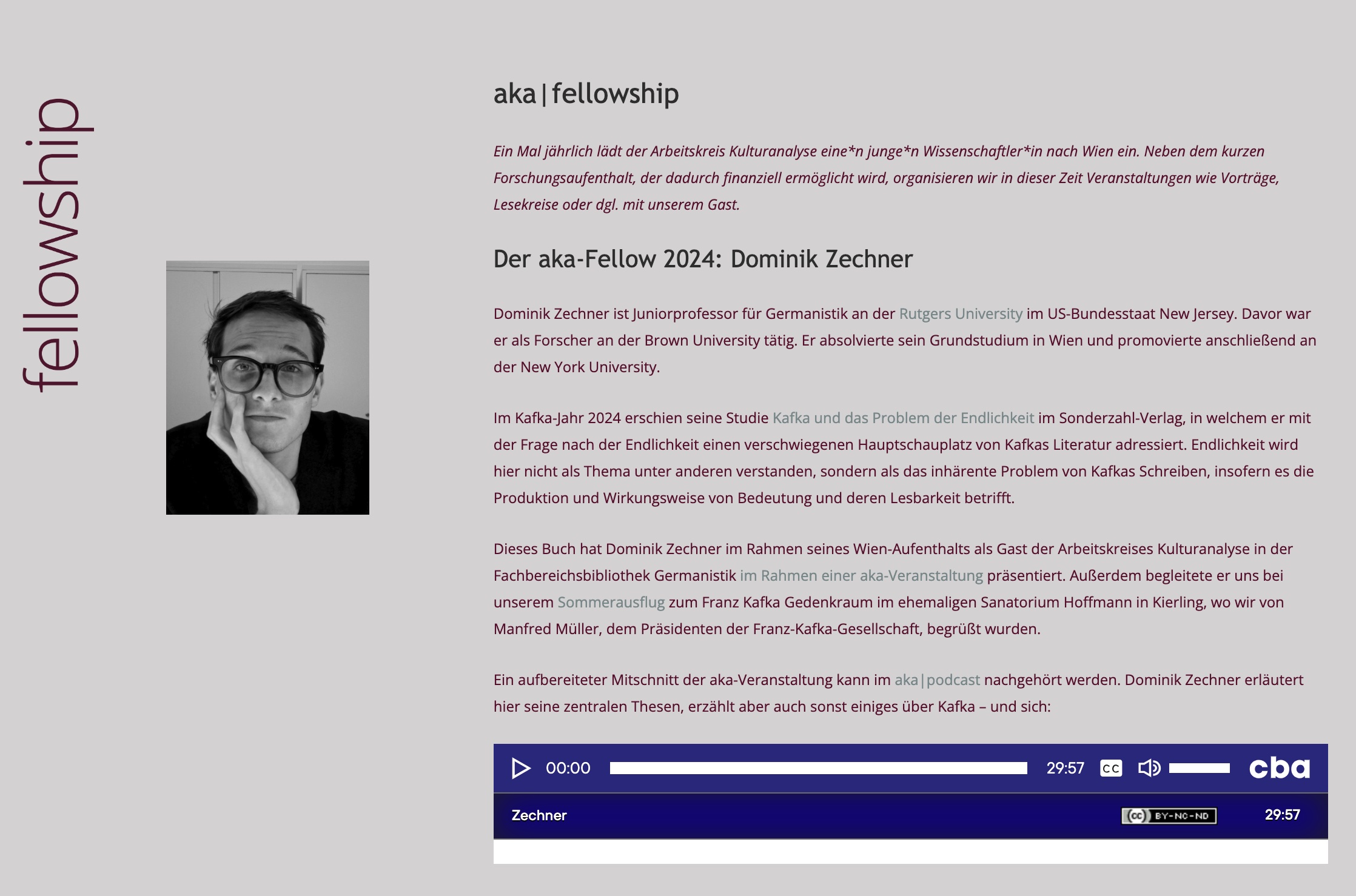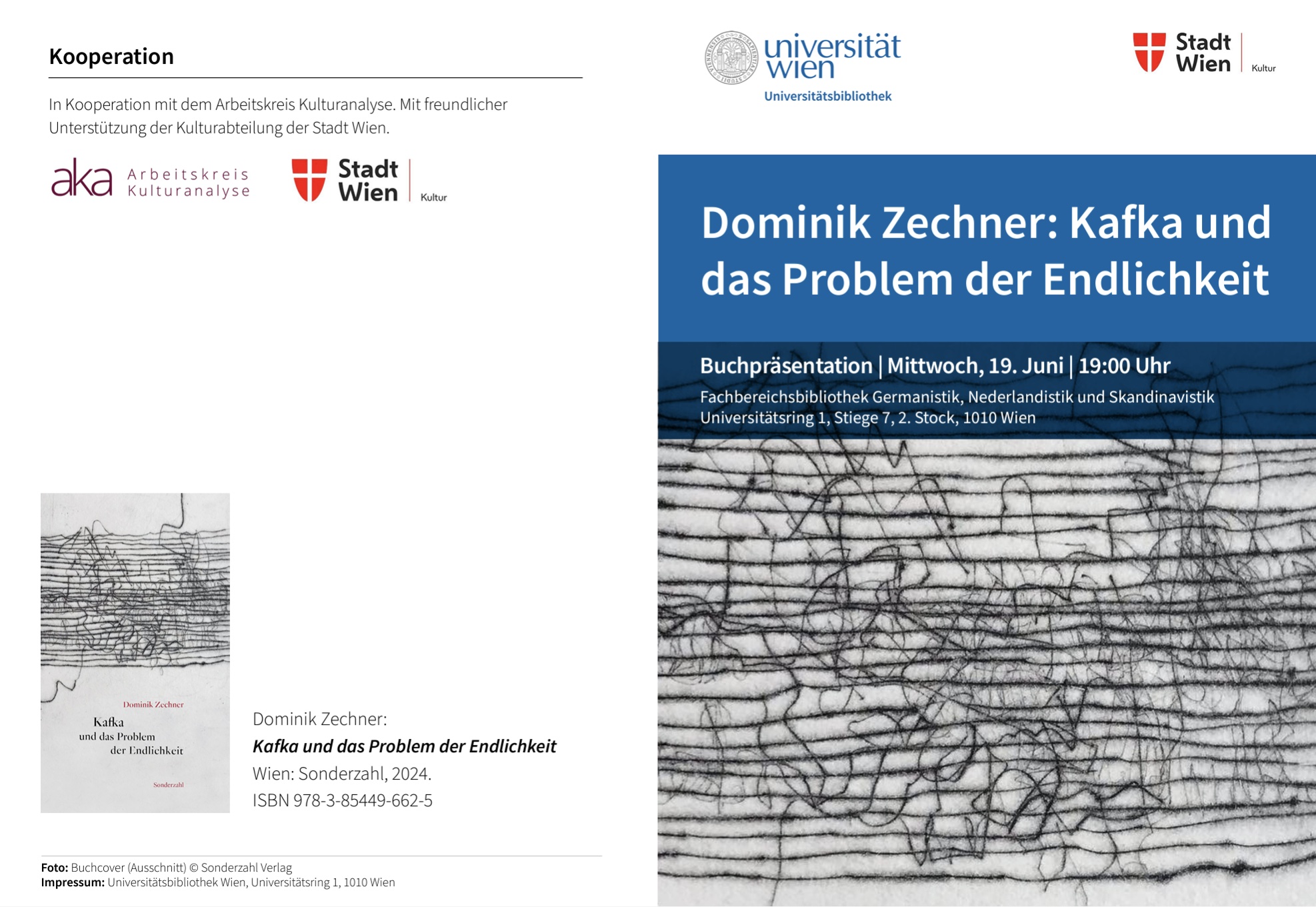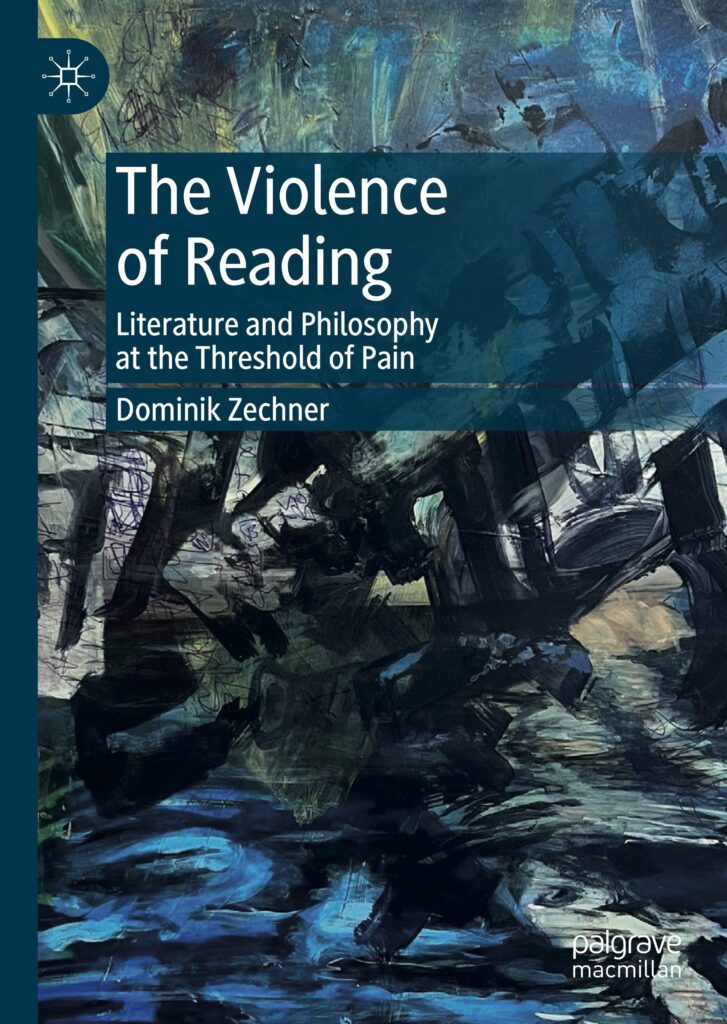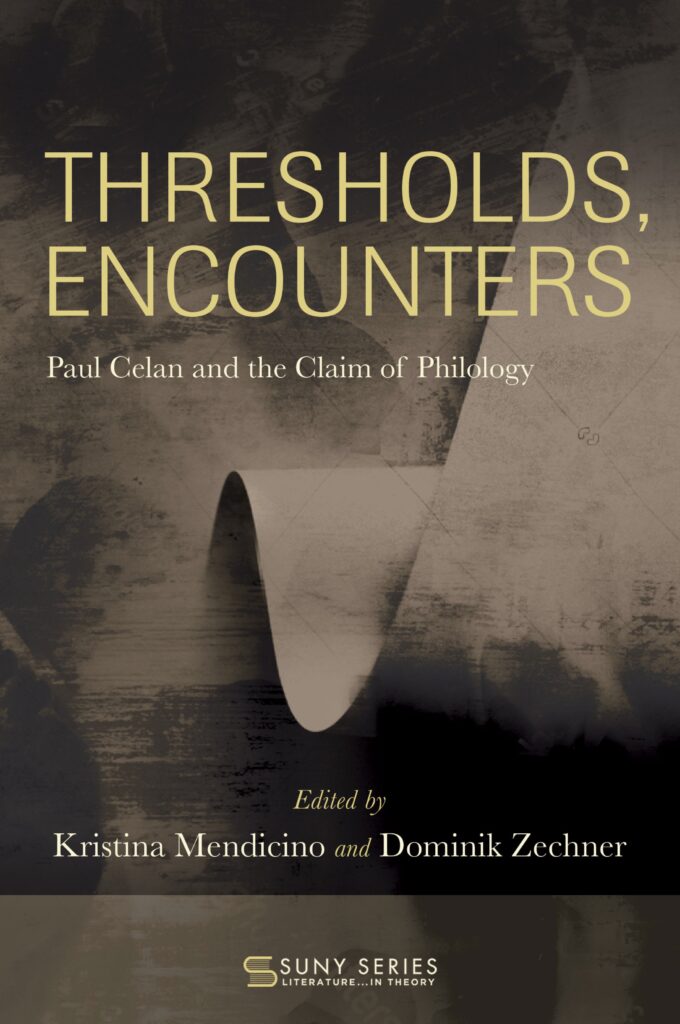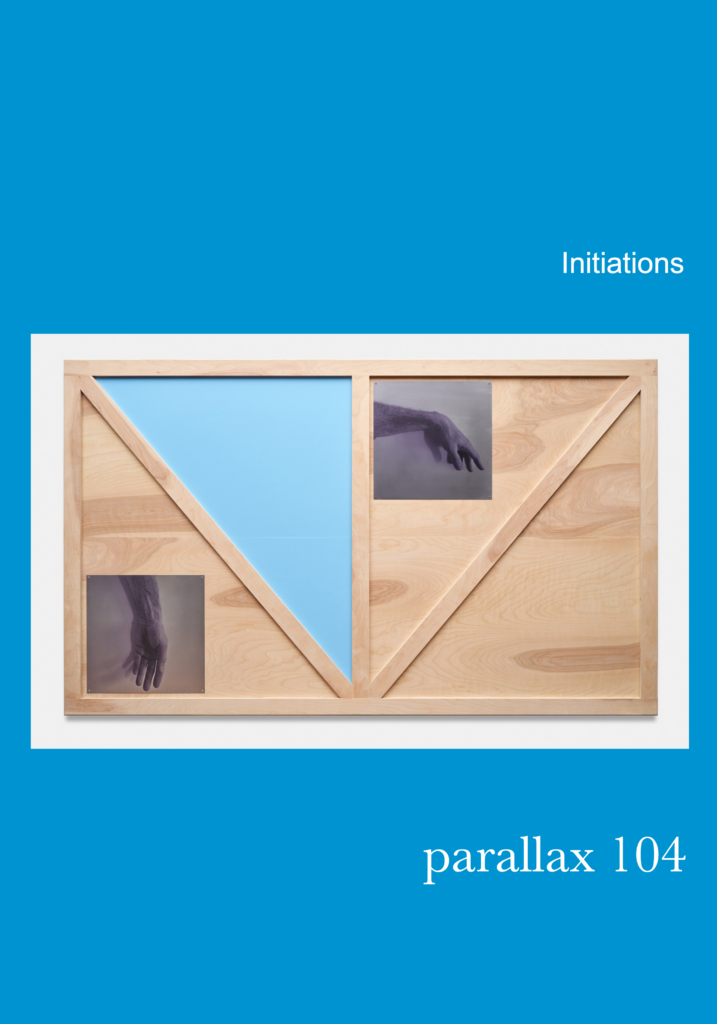Homepage
Spring 2026 Office Hours: Mondays, 12:30–1:30pm.
News:
Talk at New York University:
The NYU Department of German & Deutsches Haus at NYU present my lecture The End of the World:
This talk revisits one of the oldest problems in linguistic theory: how are words related to things? From Aristotle’s Peri Hermeneias onward, linguistic expressions have been understood as representations of thingly realities, with words functioning as placeholders for the phenomenal objects to which they refer. By the end of the nineteenth century, this assumption reached a decisive formulation in the work of the German logician Gottlob Frege, who effectively identified the process of linguistic reference with the extra-linguistic referent itself. Such a gesture raises fundamental ontological questions: is language merely one thing among others, or does it possess a distinct mode of existence? Reexamining Frege’s crucial differentiation between sense and reference, the talk suggests that, rather than substantiating the referent’s ultimate authority, the opposition allows for a different reading — one that reveals the referent as linguistically produced, an effect of sliding and differential significations. On this view, referentiality precipitates a crisis of truth, rendering veracity the effect of a fictional structure. The talk thus concludes by probing the referential function of literature, offering a reading of Robert Walser’s prose piece “The End of the World” (“Das Ende der Welt”), whose discourse constructs no stable reality but offers an allegory of the referent and its genesis.
Wednesday, February 18th at 5:30pm. RSVP here.
(Illustration credit: May Zheng)
Spring 2026 Course Offerings:
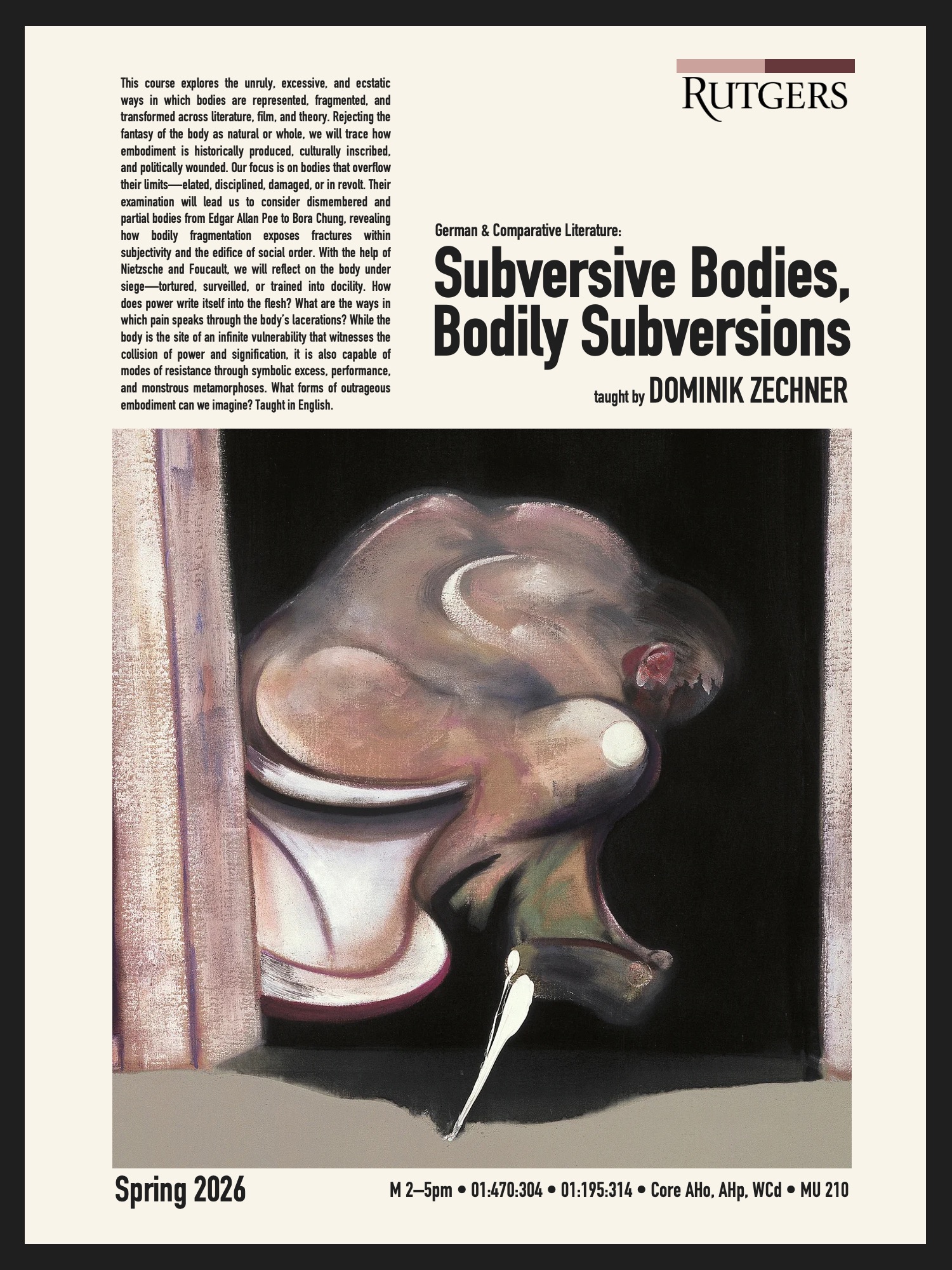
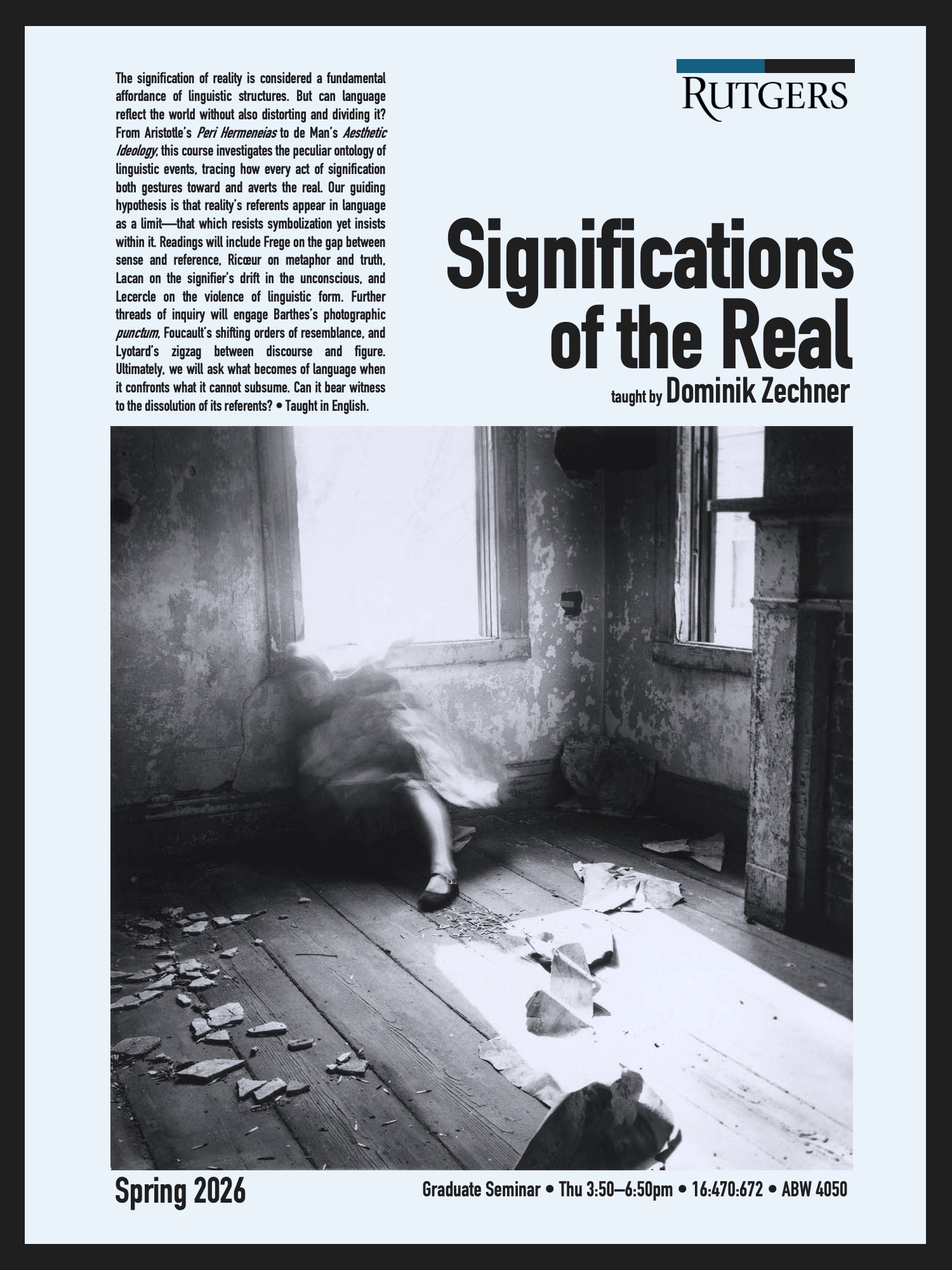
Subversive Bodies, Bodily Subversions [01:470:304 • 01:195:314]: This course explores the unruly, excessive, and ecstatic ways in which bodies are represented, fragmented, and transformed across literature, film, and theory. Rejecting the fantasy of the body as natural or whole, we will trace how embodiment is historically produced, culturally inscribed, and politically wounded. Our focus is on bodies that overflow their limits—elated, disciplined, damaged, or in revolt. Their examination will lead us to consider dismembered and partial bodies from Edgar Allan Poe to Bora Chung, revealing how bodily fragmentation exposes fractures within subjectivity and the edifice of social order. With the help of Nietzsche and Foucault, we will reflect on the body under siege—tortured, surveilled, or trained into docility. How does power write itself into the flesh? What are the ways in which pain speaks through the body’s lacerations? While the body is the site of an infinite vulnerability that witnesses the collision of power and signification, it is also capable of modes of resistance through symbolic excess, performance, and monstrous metamorphoses. What forms of outrageous embodiment can we imagine?
Significations of the Real [16:470:672]: The signification of reality is considered a fundamental affordance of linguistic structures. But can language reflect the world without also distorting and dividing it? From Aristotle’s Peri Hermeneias to de Man’s Aesthetic Ideology, this course investigates the peculiar ontology of linguistic events, tracing how every act of signification both gestures toward and averts the real. Our guiding hypothesis is that reality’s referents appear in language as a limit—that which resists symbolization yet insists within it. Readings will include Frege on the gap between sense and reference, Ricœur on metaphor and truth, Lacan on the signifier’s drift in the unconscious, and Lecercle on the violence of linguistic form. Further threads of inquiry will engage Barthes’s photographic punctum, Foucault’s shifting orders of resemblance, and Lyotard’s zigzag between discourse and figure. Ultimately, we will ask what becomes of language when it confronts what it cannot subsume. Can it bear witness to the dissolution of its referents?
Out now:
I reviewed Peter Szendy’s thought-provoking new book for the OLR Supplement.
Out now:
My article “How to Disappear Completely” was just published as a Feature Paper in the open access journal Humanities, headlining the August 2025 issue:
Out Now:
The New Books Network had a conversation with me about my monograph The Violence of Reading: Literature and Philosophy at the Threshold of Pain (Palgrave Macmillan 2024). Many thanks to Caleb Zakarin for his great questions!
Out Now: My article “Anmerkungen zur Gewalt des Lesens” (“Notes on the Violence of Reading”) has been published in Zeitschrift für Literaturwissenschaft und Linguistik and is available through open access. It explores a theory of the violence inherent in the act of reading, drawing a distinction between two types of reading (“lesende”) bodies: on the one hand, those that perform the act of reading, and, on the other, “read” (“erlesene”) bodies, i.e., those that are produced by this act and, in this sense, are “read into being.” Reading thus becomes a process of differentiation between bodies that is marked by a painful bearing-out. While the reading body is empirically situated and embedded within a network of referential relations, the read body signifies the violent rupture of these relations, thereby ontologically destabilizing the scene of reading. The article examines this production of read bodies through the example of Kafka’s work.
Serena Lückhoff and I organized a seminar for the 2025 gathering of the American Comparative Literature Association:
Keynote:


I was very honored to give the keynote at this year’s undergraduate research conference “dis/appearance,” organized by Rutgers seniors Emily Trujillo and Charlie Scott.
Out Now:

The recently published Spring 2025 issue of the German culture magazine Lettre international includes my essay Überlebensformen: Kafka und das Problem der Endlichkeit.
Out Now: Christiane Frey, David Martyn, & Rochelle Tobias put together a special issue of Modern Language Notes on the topic of sensus non-communis. It includes my article “Disseminar” that explores the act of teaching as displacement.
The Deaths of Franz Kafka: On November 7, 2024, a student roundtable responded to my monograph Kafka und das Problem der Endlichkeit.
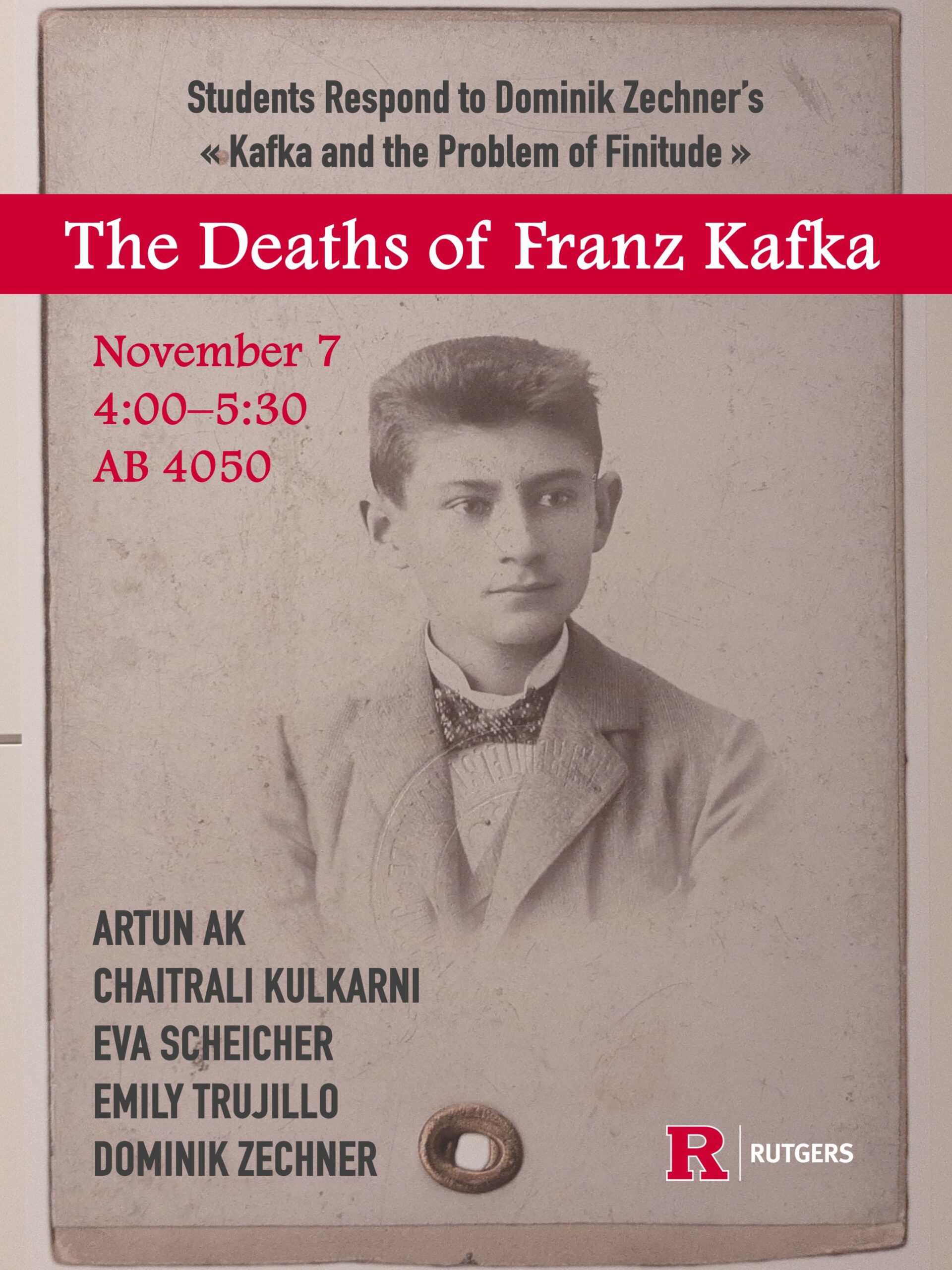
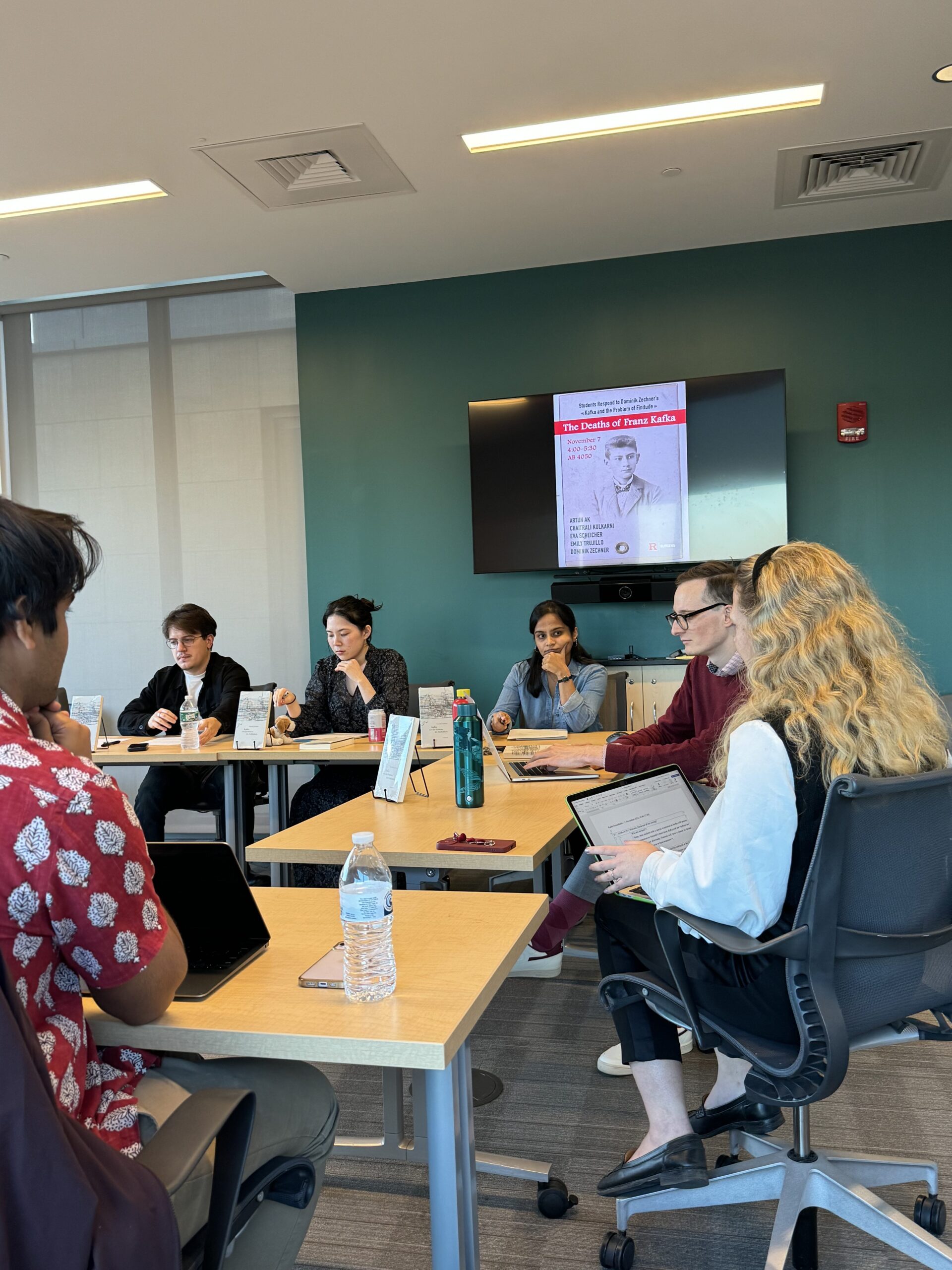
Kafka Transformed: In September 2024, Carolin Duttlinger and her team at Oxford University organized a conference commemorating a century of receiving, reworking, and recasting Kafka’s writings. I was honored to speak about the covert relationship between Kafka and Bob Dylan.
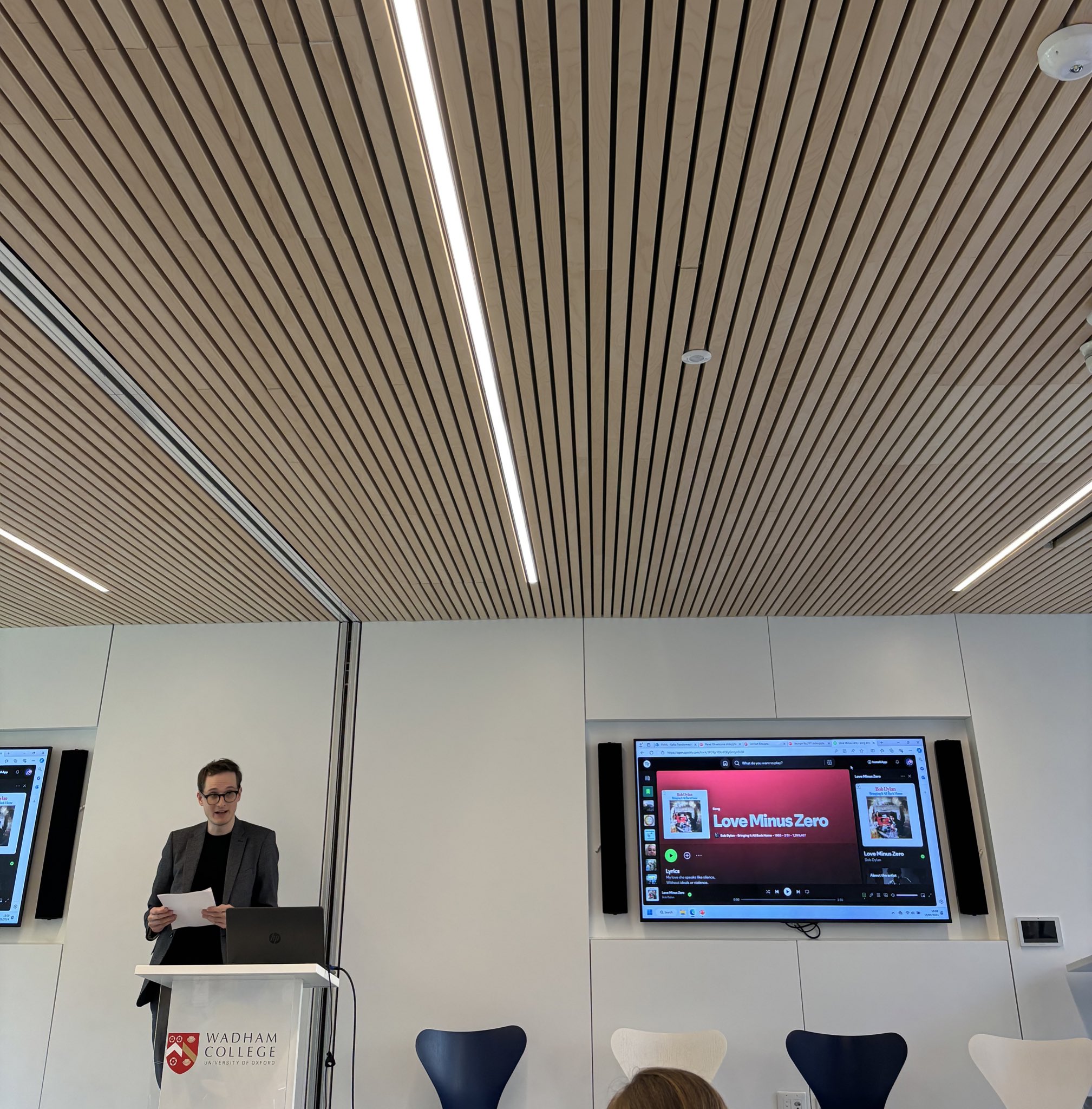
The Austrian radio station “Radio Orange” recently aired a segment on the launch of my book Kafka und das Problem der Endlichkeit (“Kafka and the Problem of Finitude,” Sonderzahl 2024):
In dieser Folge geht es um das neue Buch des Germanisten, Philosophen und aka-Fellow 2024 Dominik Zechner. Mit der Frage nach der Endlichkeit in Kafkas Texten adressiert er darin einen verschwiegenen Hauptschauplatz von dessen Literatur. Endlichkeit wird hier nicht als Thema unter anderen verstanden, sondern als das inhärente Problem von Kafkas Schreiben, insofern es die Produktion und Wirkungsweise von Bedeutung und deren Lesbarkeit betrifft. Mit Formulierlust und Witz wird dieser Essay zu einer erstaunlich unbeschwerten Betrachtung über den Zusammenhang von Sprache und Endlichkeit, Tod und Bedeutung.
The program can be accessed here.
In the Summer 2024, I served as the first ever Fellow in Residence hosted by the Arbeitskreis Kulturanalyse (“Working Group Cultural Analysis”) in Vienna, Austria:
On June 19, 2024, my new monograph Kafka und das Problem der Endlichkeit (“Kafka and the Problem of Finitude”) was presented at the University of Vienna. The event was cosponsored by aka: Arbeitskreis Kulturanalyse, Sonderzahl Verlag, the City of Vienna, and the German Department at the University of Vienna. I am thankful to everyone who participated!
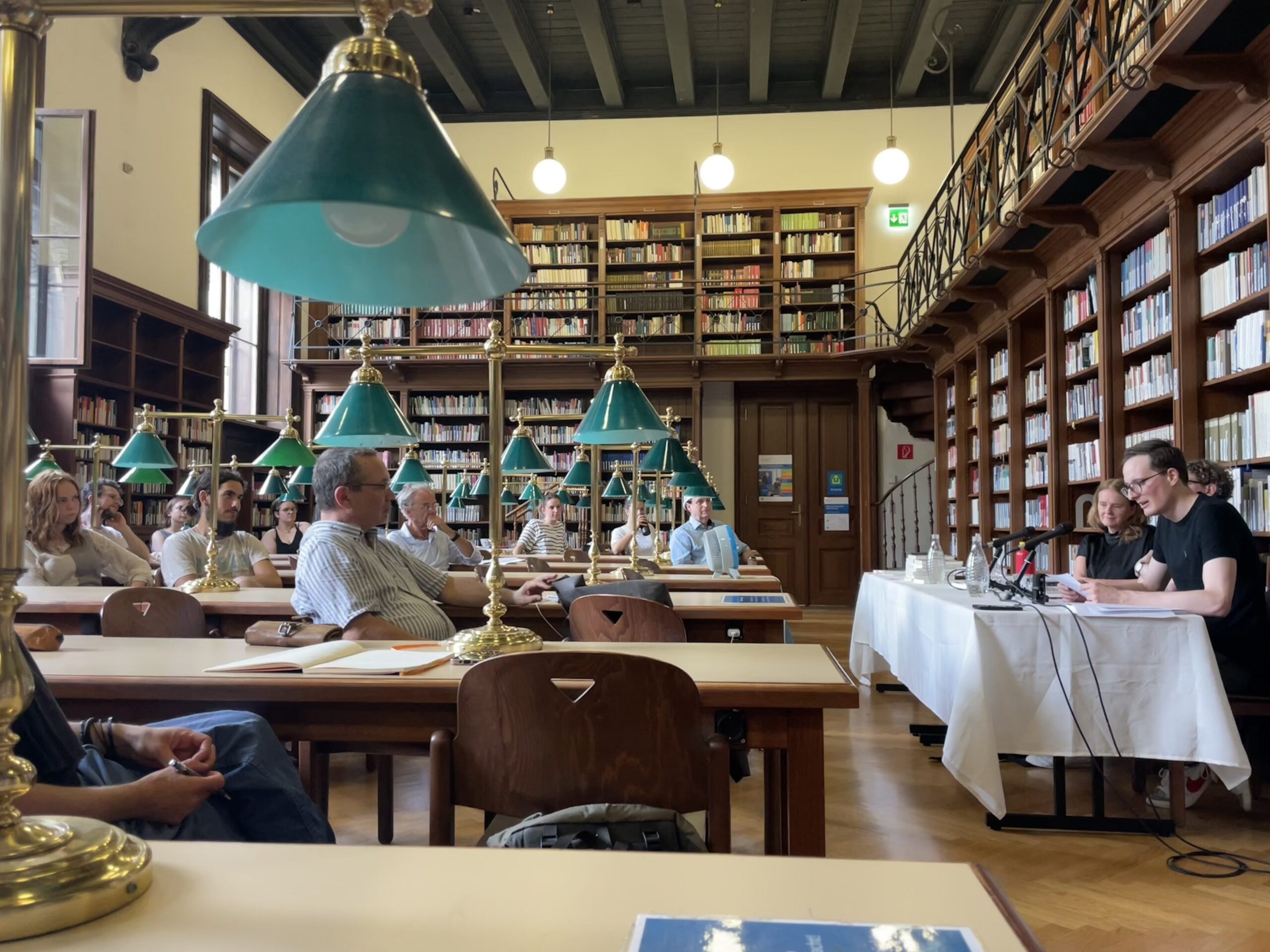
On May 31, 2024, my book The Violence of Reading: Literature & Philosophy at the Threshold of Pain was the subject of a virtual roundtable featuring speakers Ian Fleishman (Penn), Michael Levine (Rutgers), Kristina Mendicino (Brown), Jan Mieszkowski (Reed), and Emily Trujillo (Rutgers).
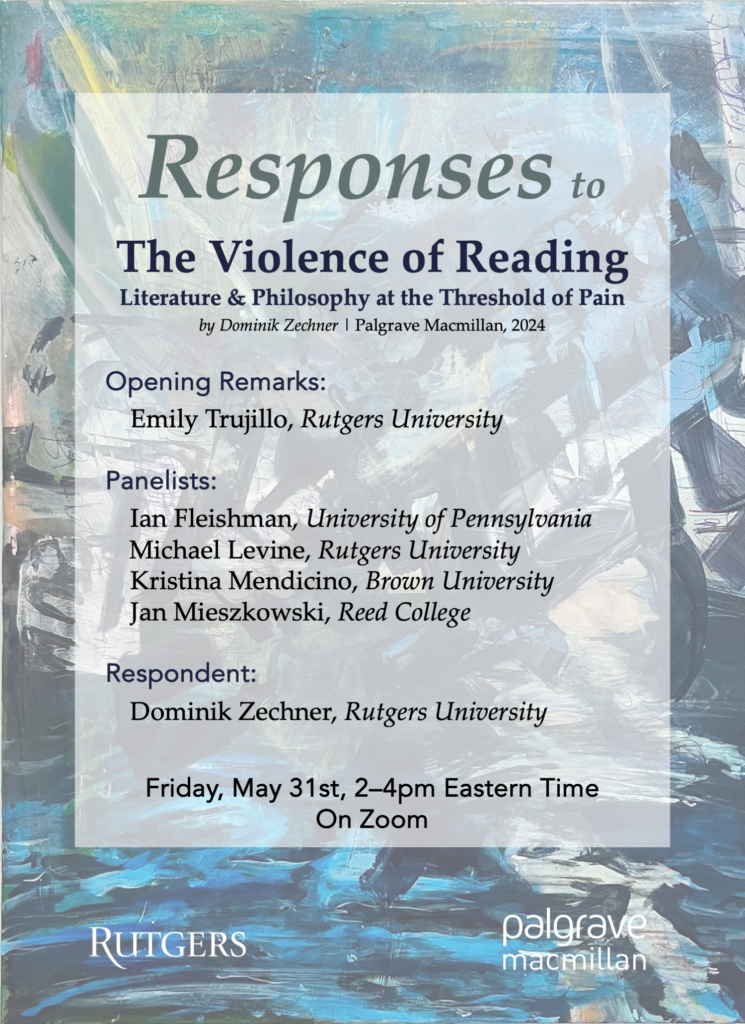

I am very excited to announce that my monograph The Violence of Reading: Literature & Philosophy at the Threshold of Pain has been published! The book puts the reader’s body under duress as it explores various forms of linguistic pain.
Voices:
“This book is provocative, compelling, and beautifully written. Zechner has transformed the pain of reading into a very pleasurable experience.”
—Elissa Marder, Professor of Comparative Literature and French, Emory University
“Dominik Zechner writes: ‘Instead of putting up a resistance to language as such, pain divests linguistic structures of their unreliable secondary functions’ – communication, representation, etc. – ‘and discloses an occurrence of language divided from the constraints that subjugate its experience under the supremacy of phenomenal representation.’ In other words, pain is poetry. As every Tumblr girl already knows.”
—Olivia Kan-Sperling, Assistant Editor, The Paris Review
On April 5, 2024, I facilitated the workshop “Justice in Language: Literature and the Construction of Race,” together with Stephanie Galasso, in which we discussed the relationship between race and language in texts by Toni Morrison and Sharon Dodua Otoo.
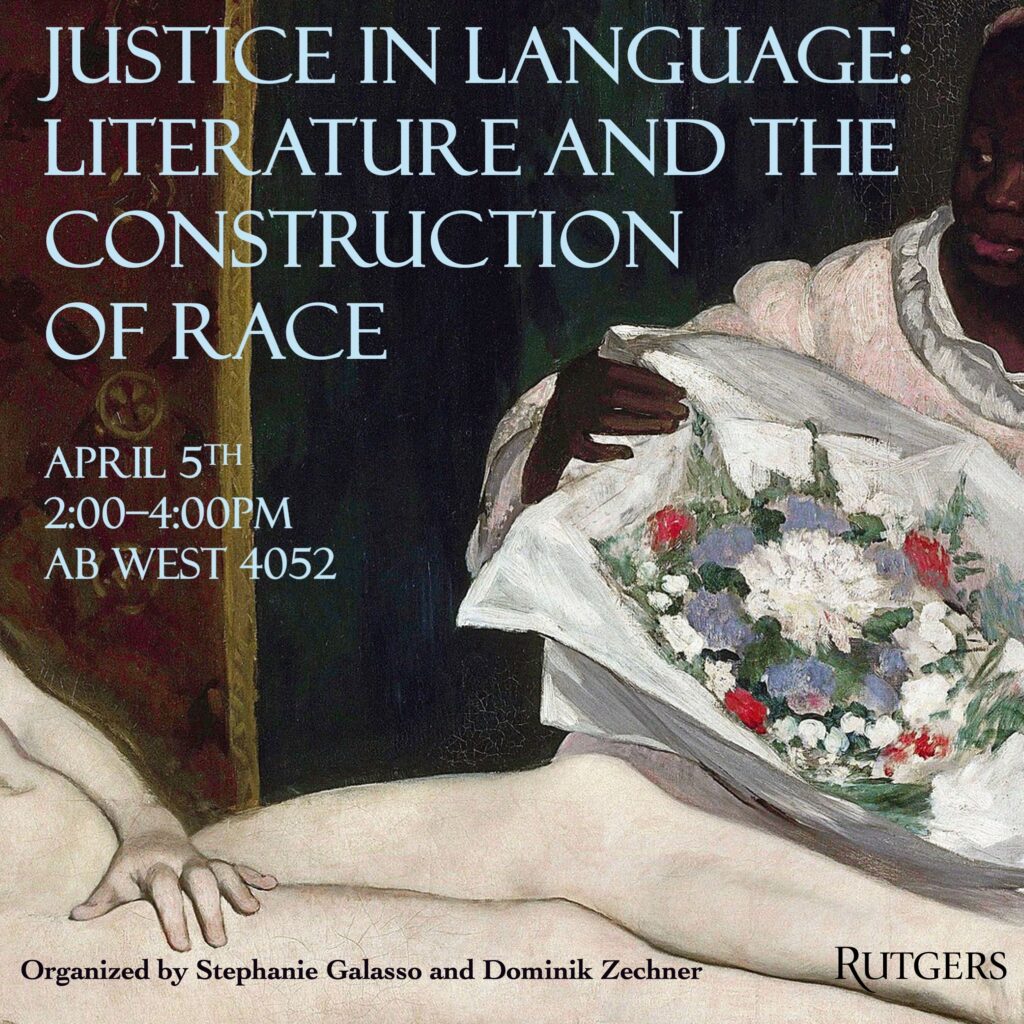
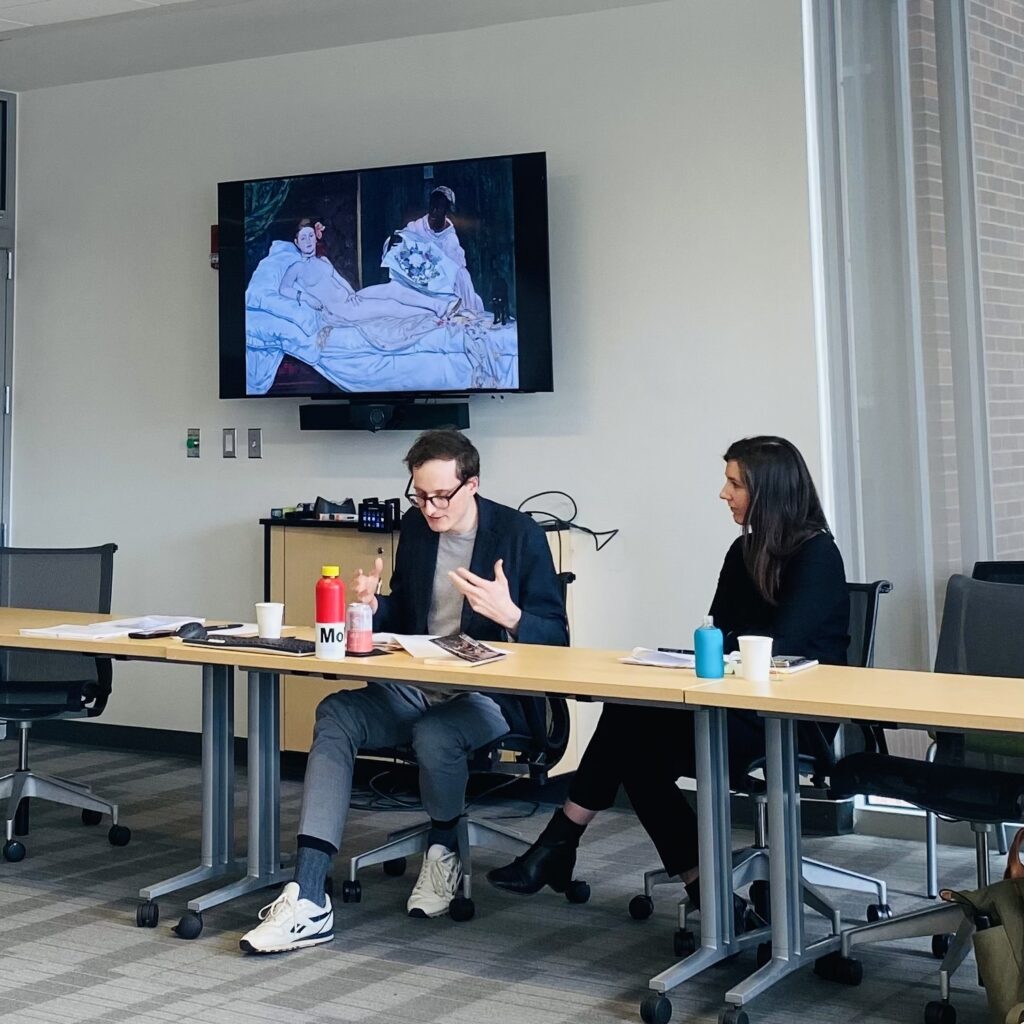
My article “Törleß and the Scene of Reading” appeared in a special issue on Literature, Philosophy, and Psychoanalysis with the journal humanities.
The article reads Robert Musil’s debut novel Die Verwirrungen des Zöglings Törleß (The Confusions of Young Törless, 1906) as a novel of the institution (Campe) in which diverse forms of violence are intertwined. Contrary to the assumption that Musil’s novel aims at the depiction of sado-masochistic transgressions, my argument focuses on a reading scene that mediates the novel’s various potentials of violence: only when Törleß reads Kant does it become clear which violence and which pain are meant by Musil’s text. The experience of reading becomes a masochistic act in the course of which the pleasure of the text is recast in terms of a negative textual jouissance. Musil’s novel, in turn, becomes readable not as an exhibition of schoolboys in disgrace, but as an exploration of the violent structure of practical reason itself.
The extended German version of this essay has recently been published in the collected volume Robert Musil im Spannungsfeld zwischen Psychologie und Phänomenologie, edited by Artur R. Boelderl and Barbara Neymeyr.
Out now: Thresholds, Encounters: Paul Celan and the Claim of Philology
co-edited with Kristina Mendicino, with contributions by Michael Auer, Christine Frank, Irina Kogan, Michael G. Levine, Natalie Lozinski-Veach, Kristina Mendicino, Jan Mieszkowski, Pasqual Solass, Simone Stirner, Sarah Stoll, Naomi Waltham-Smith, and Dominik Zechner.
Paul Celan’s works dwell on the threshold between the extremes of poetic expression and philosophical reflection. The divergent literary and critical idioms that have marked Celan’s writing—and that Celan’s writing has come to mark for others (Hamacher, Derrida, Szondi)—thus call for a new philology. This philology cannot be situated within presupposed genres or fields but rather explores the ways in which poetic and philosophical ambitions meet in texts by, and on, Celan. The first part of Thresholds, Encounters (“Ex-posing the Poem”) speaks to issues of history, ecology, and aurality; the second part (“Language Dislodged”) delves into Celan’s articulations of encounter, positionality, and translation. Throughout, contributors probe the consequences of Celan’s poetry for thinking and writing, while inviting readers from different disciplinary spaces to further pace out the liminal zones opened by his oeuvre.
Praise:
“This book stakes its ‘claim of philology’ by estranging preexisting critical positions on Celan and fathoming his multivocal idioms as if for the first time.”
—Critical Inquiry
“Beautiful and very open in its structure, Thresholds, Encounters is an invitation to dialogue.”
—Ilit Ferber, author of Language Pangs: On Pain and the Origin of Language
“The volume demonstrates an exemplary fidelity to a practice of philology that is attentive to language’s capacity for ungrounding its propositions. It would not be an exaggeration to describe these performances of reading as tours de force.”
—Jason Groves, author of The Geological Unconscious: German Literature and the Mineral Imaginary
Out now: parallax 28.3 “Initiations: The Pitfalls of Beginning”
co-edited with Kristina Mendicino, with essays by Saul Anton, Ian Balfour, Jörg Kreienbrock,
Kristina Mendicino, Jan Mieszkowski, Charles de Roche, Adam R. Rosenthal, & Dominik Zechner
